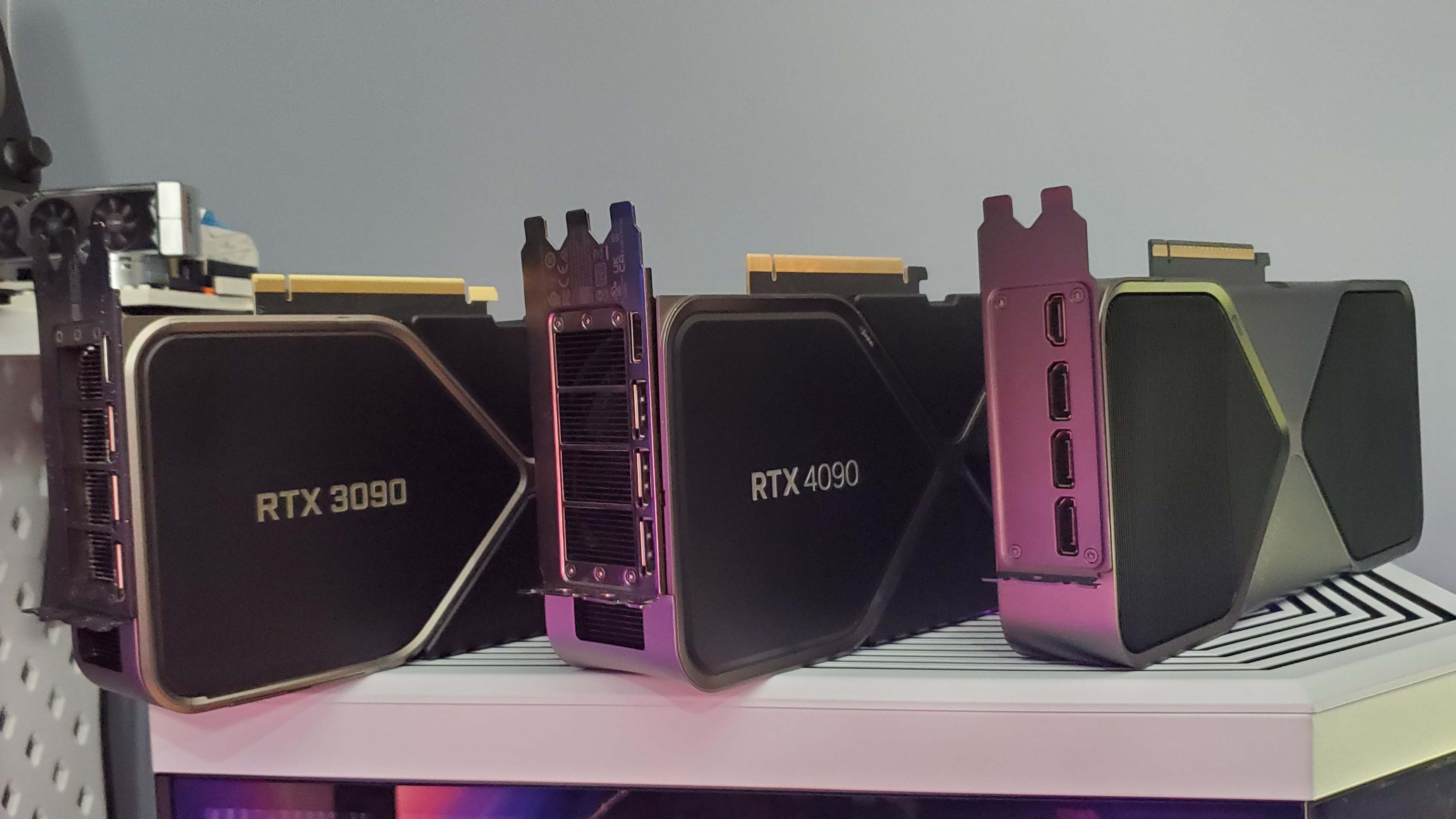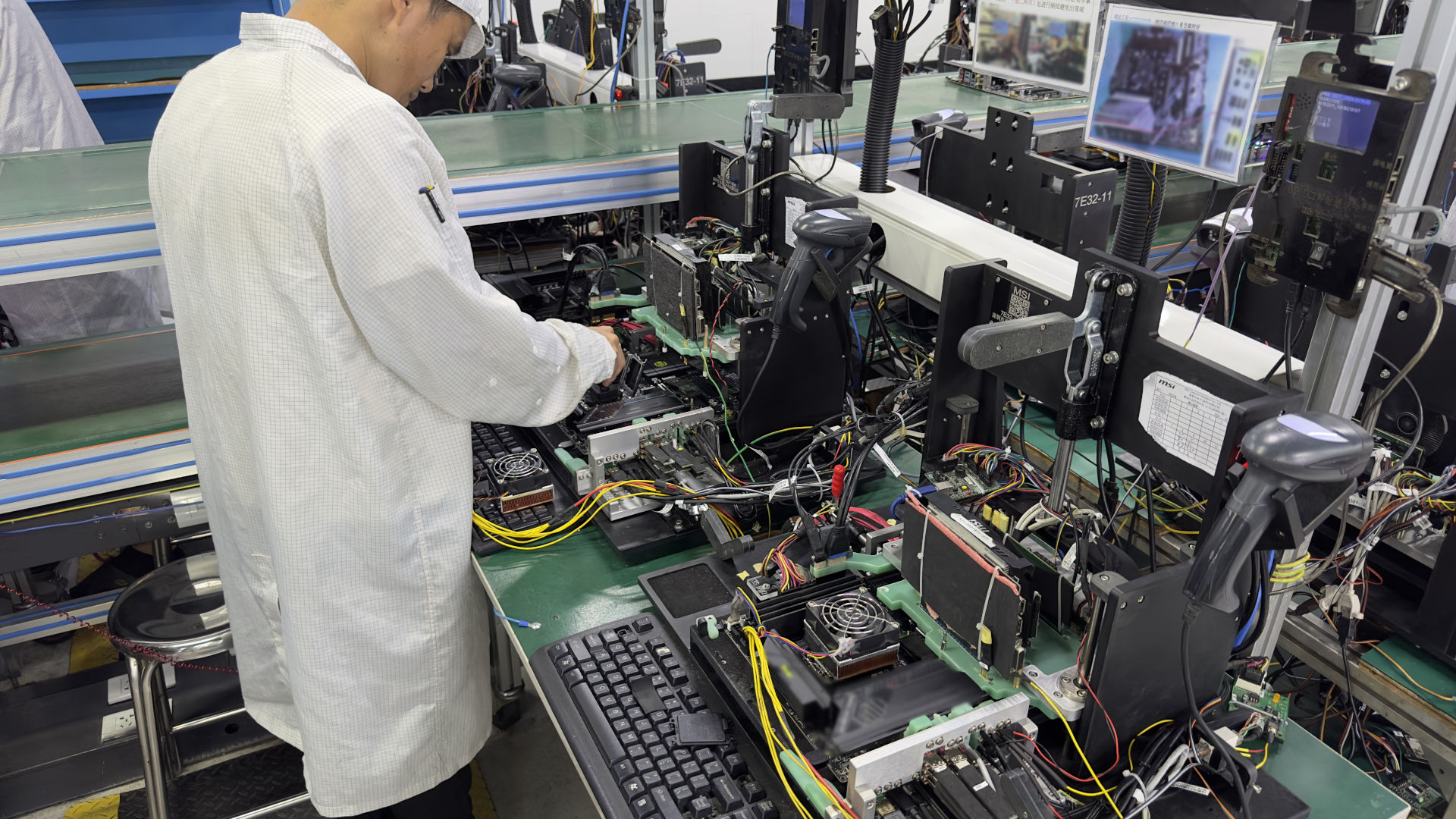As part of Trump’s seemingly isolationist strategy to grow the country’s economy (and apparently combat fentanyl use), the US President recently introduced tariffs against China, Mexico, and Canada. Although the latter two have been delayed, tariffs against China are in force, and we’re already seeing signs of potential impact in the PC gaming sector.
Motherboard and graphics card manufacturer ASRock told PCMag that it will be moving at least some of its manufacturing away from China: “As for the 10% tariff applied to other products like GPU cards, we need some time to transfer the manufacturing to other countries.”
This is just a concrete example of what we’d already been warned of by the Entertainment Software Association (ESA): that tariffs on videogame-related hardware could harm the gaming industry in the US. Whether the tariff strategy is a good move overall, politically and economically, some negative impact can’t be denied.
To again get a little more concrete, ASRock also says that “in the transition period [between manufacturing in China and manufacturing elsewhere], we may absorb some of the cost and also increase some in price to reflect the increased cost.” This, despite the fact that “since the market is still highly competitive, it is not easy to raise price[s].”
This isn’t likely to be an isolated issue, either. Tons of PC gaming hardware companies do some or all of their manufacturing in China. MSI, for instance, makes its motherboards in Shenzhen, China.
TSMC, too, has some production in China in addition to Taiwan, this being its Nanjing fab. However, this facility’s older 16 nm and 12 nm FinFET process, once used for Nvidia 10-series cards, is now used for things not so gaming-related, such as TVs. There could be smaller things—chip controllers, for instance—still made on this node, though.
But any effects on a company’s margins can have a knock-on effect. The Commercial Times reports that it’s estimated that prices for TSMC’s 7 nm or smaller processes will be raised by over 15% this year. These effects will no doubt be expounded by export controls: in addition to import tariffs, advanced chips also require authorisation to be sold to China.
Unless Trump follows through with threats of massive tariffs against Taiwan, however, the main effects on the PC gaming industry will be not on chip fabs but on the likes of manufacturers such as MSI and ASRock—any component or peripheral manufacturers that have some or all of their process based in China.
We already saw signs of this late last year, when PC Partner decided to relocate its headquarters from China to Singapore (via Tom’s Hardware). This company is the second-largest graphics card manufacturer, making PCBs for brands such as Inno3D and Zotac.

Best CPU for gaming: The top chips from Intel and AMD.
Best gaming motherboard: The right boards.
Best graphics card: Your perfect pixel-pusher awaits.
Best SSD for gaming: Get into the game ahead of the rest.
Some might not realise just how reliant on Chinese manufacturing a lot of the component and PC market actually is. To give just one example, Corsair, an American company, has some of its PSUs made by Seasonic, and while Seasonic’s offices are based in Taiwan, its factory is located in mainland China.
Ultimately, this will probably mean that a lot of manufacturers have to raise prices or move manufacturing out of China as ASRock is planning on doing. And I suppose Trump could consider companies upping and leaving China a long-term political and economic victory, but any price hikes will ultimately hit American customers.
None of this is to mention other potential practical or administrative knock-ons. The United States Postal Service (USPS), for instance, recently announced that it was suspending millions of daily packages from China, although these have now resumed.
As with most things economic, little is certain. But with ASRock now seeming to plan on shifting its manufacturing away from China and talking about price increases, we’re seeing some real effects of the tariffs in the PC gaming hardware industry. And these are just 10% tariffs, much lower than many expected. Who knows what 100% tariffs against Taiwan would cause?










